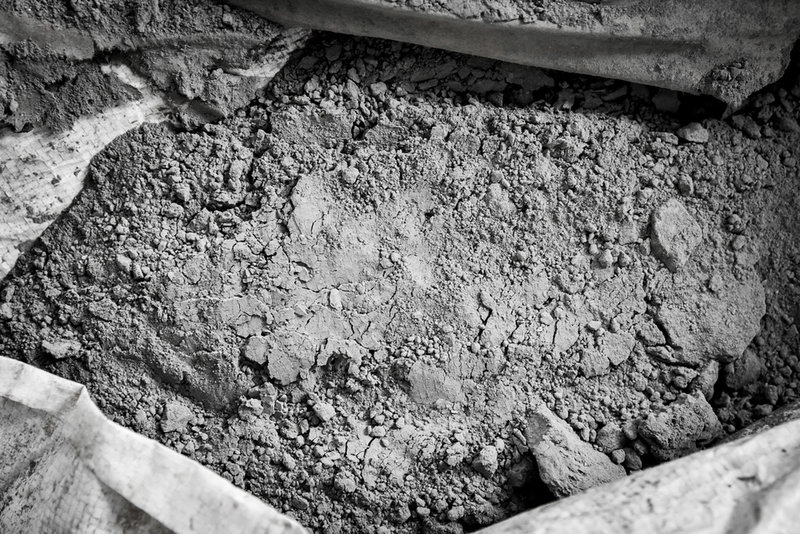Regional focus
Cementing Sweden’s economic future
Earlier this year, an environmental ruling in Sweden saw the country’s largest cement factory stripped of its licence to mine limestone. While the decision was welcomed by environmental activists, the construction industry now faces a very uncertain future. Alex Love explores the potential impact of the fallout on Sweden’s economy and future construction plans.

S
weden’s construction and mining industries are growing increasingly concerned about the long-term supply of cement in the country amid environmental battles in the courts.
The issue surrounds Cementa, which produces more than 70% of all cement used in Sweden. A subsidiary of Germany-based HeidelbergCement, the company sources the majority of limestone for its cement from quarries on the island of Gotland, off the Swedish south-east coast.
Cementa initially applied to have its mining licence on the island extended until 2041, which was approved by the Land and Environment Court in January 2020. However, Sweden’s Supreme Land and Environmental Court overturned the decision in July 2021.
The court claimed there had been insufficient investigations into the effect that operations at the site have on groundwater. In August, Sweden's Supreme Court ruled that Cementa was unable to appeal the decision.
Cementa was facing the prospect of ending its quarrying operations in Gotland at the end of October 2021. At this point, the Swedish Government stepped in to allow the company to continue mining limestone until June 2022. Yet the Swedish Council on Legislation denied the extension in September.
Days later on 21 September, the Swedish Government held a press conference to announce that it would be pushing ahead with legislation to grant Cementa an exemption, enabling the company to proceed with production past October. Ministers were keen to stress that the decision was for the benefit of Swedish infrastructure and housing, and not one company.
However, it is not yet clear just how long Cementa will continue its quarrying operations on Gotland. And based on the history of the case, there may still be further legal challenges ahead.
Unknown sources
In Sweden, many industries using cement are dependent on supplies from Cementa. Should the company be forced to permanently end quarrying operations in Slite, Gotland, there is much uncertainty as to where future supplies of cement will come from. The most likely source is from imports, but this may well lead to greater carbon emissions.
Replacing one supplier with another is far from straightforward. There is also no guarantee that any replacements will meet the same quality requirements as the previous supplier. Swedish state-owned mining company LKAB has been heavily reliant on Cementa for supplies of cement to make concrete for strengthening structures at its mines.
“We use a couple of hundred thousand tonnes of concrete to reinforce the tunnels and shafts of our mines each year. That is more than what is being used to build private houses in all of Sweden every year. And nearly all of the cement needed comes from Cementa, as they have the right quality and are located relatively close to our mines,” says an LKAB spokesperson.
Finding a replacement supplier could even take years. As there is a lack of providers in Sweden able to meet LKAB’s requirements, the organisation is assessing options from overseas.
As we buy the cement in bulk there has to be a logistics chain in place, and that could take years to facilitate.
“There are no suppliers nearby that can provide the volumes and the quality we demand,” adds the KLAB spokesperson.
“We are looking globally, and the problem is quality, available volumes and logistics. As we buy the cement in bulk there has to be a logistics chain in place, and that could take years to facilitate. All alternatives mean a bigger impact on climate and environment than deliveries from Cementa on Gotland.”
There could be a severe disruption to operations if LKAB fails to find a new supplier in time. This could also hinder the organisation’s transition to more eco-friendly production methods.
“We may have to reduce our production by 50%-80%. As we are about to make a huge change in our production, switching to CO2-free sponge iron that will cut global emissions of carbon dioxide by 35 million tonnes – the same as two-thirds of all of Sweden’s CO2 emissions – this is a threat not only to our operations, but to the shift to a greener industry,” says the KLAB spokesperson.

The fire at Grenfell Tower on 14 June 2017 killed 72 people and exposed the flaws in regulations and failures in oversight regarding fire safety for high-rise buildings in England.
Economic impact and wider implications
There are fears that the impact of a national cement shortage could be worse than the 1990s’ construction crisis when the unemployment rate among Swedish construction workers reached 17.9%. However, there are no clear indicators that this is set to happen. Nevertheless, the situation has clouded the future outlook and the Swedish Government is searching intently for long-term solutions.
According to Johan Lindholm – chairman of Byggnads, the Swedish building workers' union – there shouldn’t be a choice between either environmental commitments or construction activities, when the two can be compatible. But he says the situation does highlight the serious flaws in an over-reliance on one supplier.
“It’s a complicated matter and it is yet too early to say how certain decisions would affect the construction industry. I know the Swedish Government is working extremely hard to find a solution to this situation and we’ve had a good dialogue with the Ministry of Enterprise and Innovation throughout,” says Lindholm.
“However, if the Swedish construction industry would find itself in a shortage of concrete that would undoubtedly lead to delays in many important construction processes and, as a result, a rise in unemployment numbers.”
Sweden has been too dependent on one specific company and one specific mining site. That needs to be rectified.
He continues: “There’s no conflict between environmental considerations and a high rate of construction or jobs in the construction industry. On the contrary, that is a necessity if we are to be able to create a sustainable future and a sustainable industry. Sweden has been too dependent on one specific company and one specific mining site. That needs to be rectified.”
The decision to end quarrying operations in Sweden for environmental reasons has been praised in other quarters. Will Arnold, head of climate action at the UK’s Institution of Structural Engineers, hopes other governments around the world will take similarly bold decisions in the drive towards net-zero targets.
“To me, it seems like a good thing to have done. Whether we're going to expect to see more of it, I don't know. I sort of hope so,” says Arnold.
“I do think we are likely to see more and more policy moves in that sort of area, whether anyone will do anything quite as extreme as what Sweden's just done anytime soon, I don’t know. But without a doubt, over time, we're bound to see the policymakers respond to what the public wants. Because at the end of the day, what the public wants is a more sustainable future.”
Main image: Grenfell Tower in West London, where a severe fire killed 72 people in June 2017. Photo by Andrew Redington | Getty Images